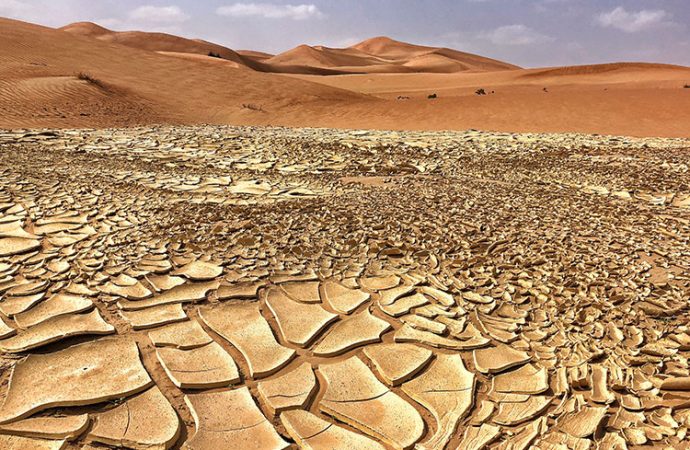Climate change is one of the most prevailing issues across the globe these days that have lured the focus of many researchers, professionals and decision makers, with having an adverse effect on developing countries. Climate change is the key cause of numerous issues for instance, global warming, and environmental instability, societal and economic issues. The
Climate change is one of the most prevailing issues across the globe these days that have lured the focus of many researchers, professionals and decision makers, with having an adverse effect on developing countries. Climate change is the key cause of numerous issues for instance, global warming, and environmental instability, societal and economic issues. The rapid growth in greenhouse gas emission is termed as one of the main player for such issues. Thus, the reduction of greenhouse gas emission has become a key target for global community. According to Kyoto Protocol, there are six main greenhouse gases which has a huge impact on our climate .However, the key contributor to global climate change is considered to be carbon dioxide.
The main cause which cumulates at about 80% according to Heede is due to the urban human activities. These activities includes fuel combustion, power generation and industrial operations which has been accredited as major cause of carbon emission. Over 1.5 trillion tonnes of CO2 has been emitted by the world since 1751. Accordingly, United States is considered to be the largest contributor of carbon emission since 1751, at around 400 billion tonnes which obliges her to 25% of the total world emission. Followed by China which is the second largest and 28 countries within the European Union also accounts to 22% of the contribution.
It is evident that climate issue is turning out to be more severe with time. Frequent bad weather and environment are the consequence of serious climate issues. World leaders especially from the first world countries are less inclined towards the increasing climate disasters happening across the globe. The most recent example is of Pakistan which was devastated by the recent flooding that hit almost one-third of the country. Pakistan, which produces less than 1% of the world’s carbon dioxide emissions, is currently experiencing an unprecedented climate change catastrophe that has severely harmed its already fragile economy. Despite Pakistan being a poor country, has always been blatant about climate change and global warming urging developed countries to act before it’s too late. The report of Food and Agriculture Organization of the United Nations (FAO) in 2021 shows that food prices have mounted for 12 successive months, which is the highest in 10 years.
Moreover, instead of contributors to the carbon emissions, commonly African countries are depicted as victims of the climate affects. Historically, it has contributed the very least to global carbon emission and yet the continent is facing some of the most intense changes concerning drought, heat waves, flooding and sustainable use of land. Developing countries are more exposed to climate change than the developed ones. It has a direct impact on all countries across the globe. The more severe effect of climate change is on population growth, rapid development and poverty. In the upcoming century global temperature is expected to increase between 2 and 4 °C.
However, changes in the hydrological cycle rather than greater temperatures will be the primary effects of climate change. Around the poles and in the tropics, rainfall is predicted to increase, however in the sub-tropics, average precipitation is probably going to decline. Not only will the average annual or seasonal rainfall vary, but there will also be a rise in the frequency and severity of extreme occurrences, such as floods and droughts. Without minimizing the risks, the losses are projected to be Upto 20% of GDP. There is an urgent need to rework on climate change in developing countries.
The EU should keep up its efforts to persuade the US to ratify the Kyoto Protocol and commit to further goals. Rapidly emerging nations like China and India might be considerably more willing to join mitigation efforts if industrialized nations increased their efforts to cut their emissions. The establishment and operationalization of a loss and damage fund was the historic conclusion of the 27th Conference of the Parties to the United Nations Framework Convention on Climate Change (COP27), which was held in the Egyptian beach city of Sharm el-Sheikh, on November 20. Welcoming the outcome and calling the fund necessary, more is needed to be done in order to bring a significant reduction in emissions, said by UN Secretary-General António Guterres. “The world still needs a giant leap on climate ambition.”
There is a dire need for adaptation and minimizing strategies to be incorporated into various national and regional development programme. Developing countries should also join hands with developed countries to reduce the risks of climate change. Engaging the private sector, and putting emphasis on the development and diffusion of new technologies are a few additional crucial components that should be present in every national and international approach to combating climate change. A progressive policy environment should ideally invest more in infrastructure and education, and renew agricultural research priorities. Funding should go to research that advances knowledge and forecasts of how agriculture and climate change interact. Another crucial step would be to take collective action to increase disadvantaged groups’ options for a living and their capacity for risk management.
- Legal Procedure after the Dissolution of Punjab and KP Assemblies - February 22, 2023
- National Action Plan: Have we lost track? - January 27, 2023
- The Reko Diq Case - January 9, 2023





















Leave a Comment
Your email address will not be published. Required fields are marked with *